Career crossroads look better in the Himalayas
...a postcard from the hills (and a small announcement)
So, yes, I disappeared for a bit.
Not in a dramatic, pack-my-bags-and-vanish way. Just a quiet slipping away from screens and schedules, which is to say: I went to the mountains. Shimla, to be precise.
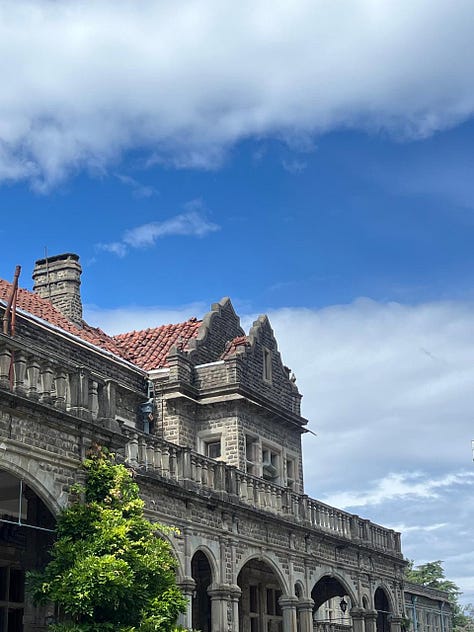
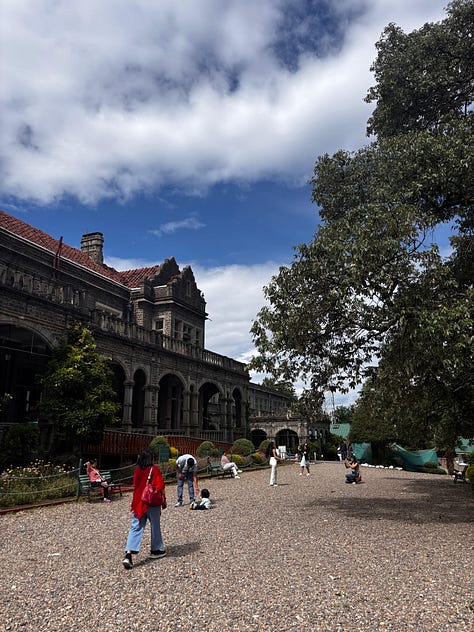
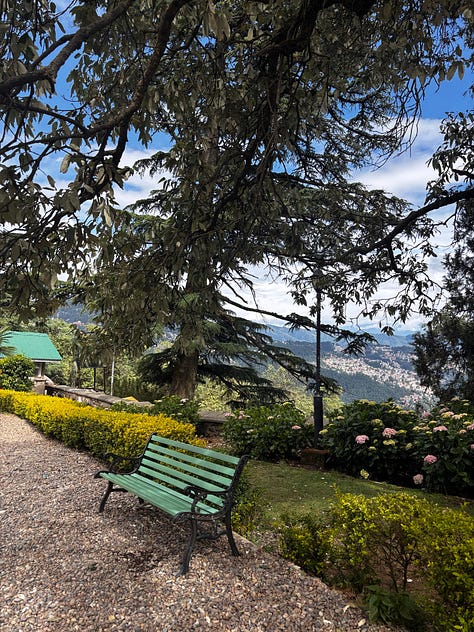
For the uninitiated, Shimla is a small, sleepy town nestled in the lower foothills of the Himalayas, once the summer capital of British India and now a postcard-perfect blend of pine-scented nostalgia and charming chaos.
It’s known for its sloping mall road lined with wooden toy shops and old bakeries, its crumbling colonial architecture that has somehow outlived its purpose, and the sound of distant church bells echoing through the mist. And of course — for those of us who grew up on a diet of Ruskin Bond stories and warm melancholy — Shimla (or Simla, as it was once called) is almost sacred.
Ruskin Bond, whose words shaped many of our early visions of the hills, often spoke of Shimla not just as a place, but as a feeling. In one of his pieces, he writes:
“Simla was a little town then, quiet and clean, with its cluster of bungalows and winding lanes, and the fragrance of pine and cedar in the air. It was a place of short walks and long silences, and even now, when I think of happiness, I think of those afternoons spent under the deodars.”
— Ruskin Bond, Rain in the Mountains: Notes from the Himalayas
And truly, it still holds some of that magic. Walk past the Ridge in early morning fog, and you’ll understand what he meant — the kind of place where you don’t need to do anything, only be.
Whether it’s the simplicity of sipping chai on a balcony while watching the clouds roll in, or spotting a macaque making away with someone’s breakfast (a daily theatre in itself), Shimla remains — even now — a strange and beautiful time capsule. A place you go to lose signal, and find something quieter instead.
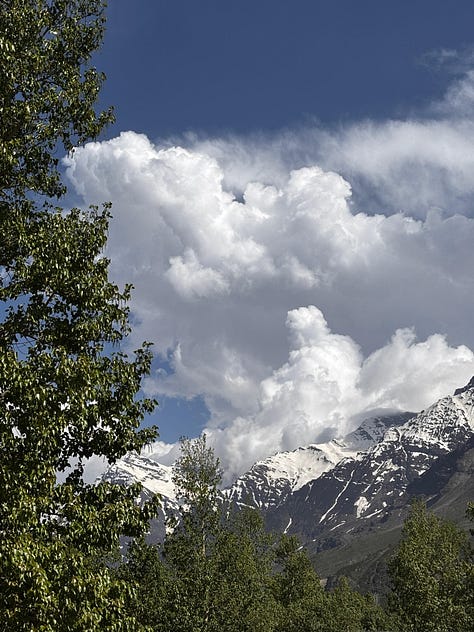
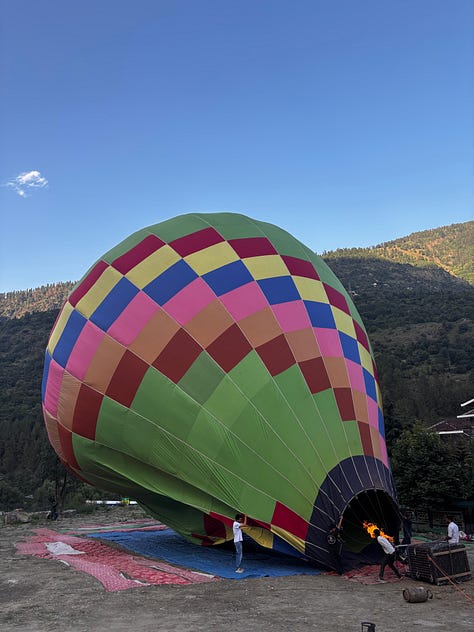
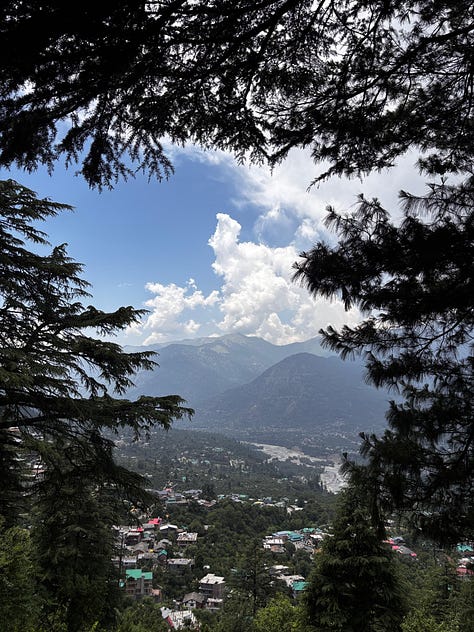
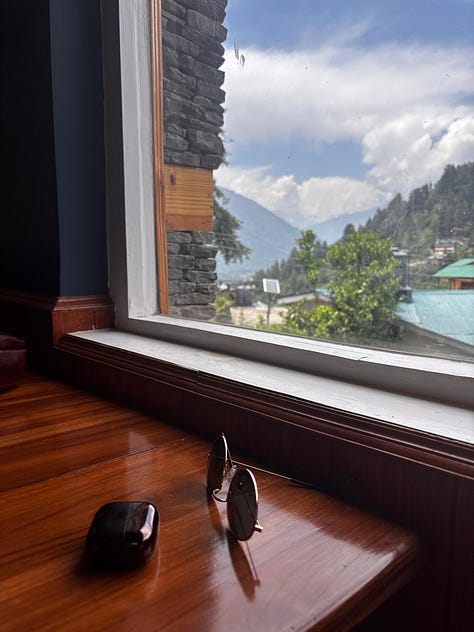
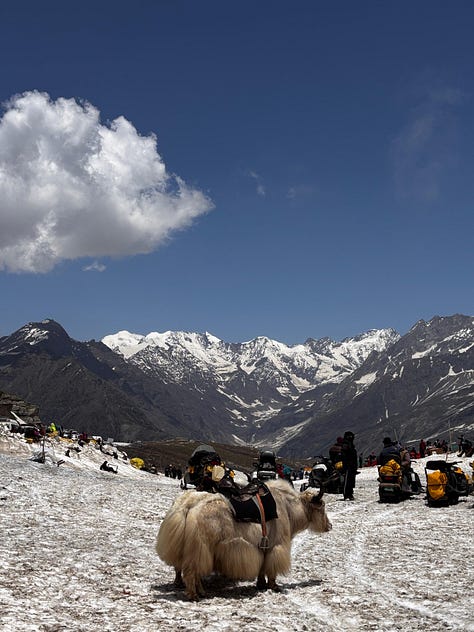
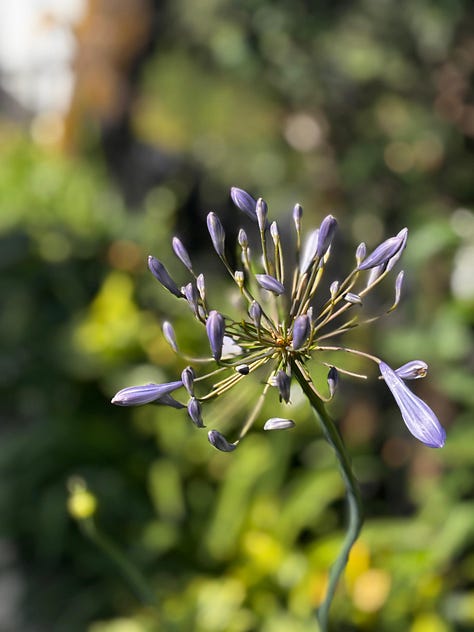
From Shimla, we made our way to Manali — a sleepy valley that has grown quite the personality (and crowds) over the years. Then Rohtang Pass, where the air thins and the sky suddenly feels generous. And finally Kullu, with its apple orchards and low-humming stillness.
Seven days. Countless hairpin bends. Just the right number of aloo parathas.
Which is also why I haven’t been riding the proverbial hamster wheel of posting every alternate day like some over-caffeinated content creature. (Although, if you did miss my near-daily essays...don’t lie. I’ll know.)
In all honesty, the break was unplanned. But necessary. Somewhere between the pine-scented air and the second round of chai on a sleepy hillside, I realised I needed to pause, not just physically, but creatively too.
And speaking of pauses: I’ve been thinking about slowing the pace down here, just a little. Fewer but fuller posts. One solid, long-form essay every week, rather than three or four little ones scattered about. I want to go deeper, not louder. Sit with an idea the way one sits with morning sunlight quietly, patiently, gratefully.
Let me know if that sounds like something you’d like to keep reading (vote below).
Now. About the trip.
It was seven days of wandering, snacking, and remembering what it means to feel small in the best possible way.
I came back with far too many photos, a bag full of pinecones I absolutely did not need, and, most importantly: clarity.
Clarity about work, about writing, about where I go next. I’ll write more about that in the upcoming post. But for now, let’s just say: sometimes you go looking for snow, and find a piece of yourself instead.
The last time I experienced this kind of startling, soul-level clarity was when I visited Mussoorie in August 2024 — another hill town steeped in quiet charm and, quite coincidentally, closely linked to Ruskin Bond as well.
I remember it vividly: the skies hung low with monsoon clouds, the scent of wet earth mingled with pine, and time blessedly slowed to a crawl. Somewhere between reading an old book on a mossy bench and laughing around a fireplace with people I loved, I felt something click into place.
That trip made me realise just how far I had drifted from the kind of life I wanted. In the constant churn of corporate routines — the back-to-back meetings, the unread emails, the hustle glorified as virtue — I had lost touch with the joy of slow living. The kind of joy that comes not from productivity, but presence. Not from performance, but peace.
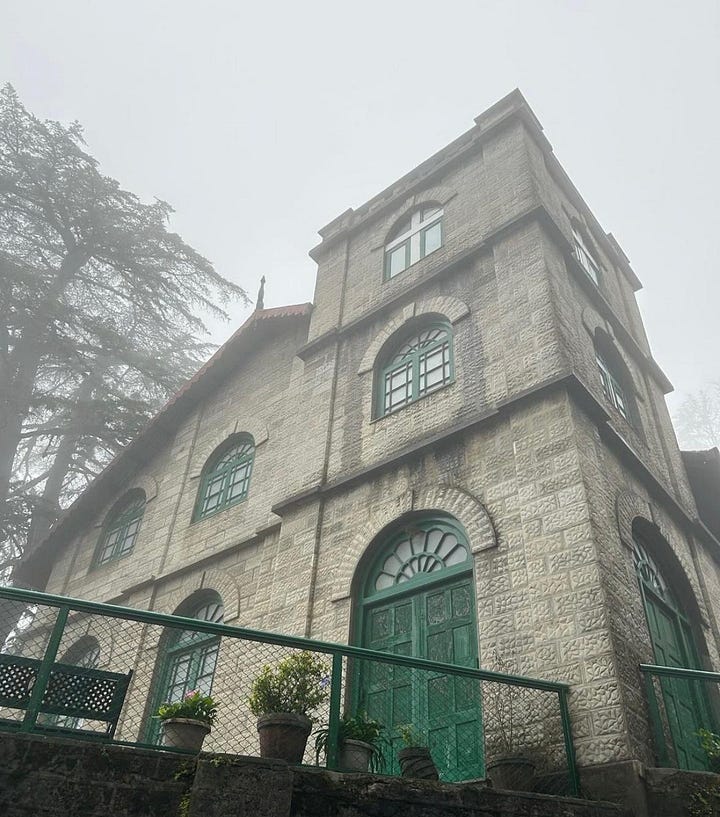
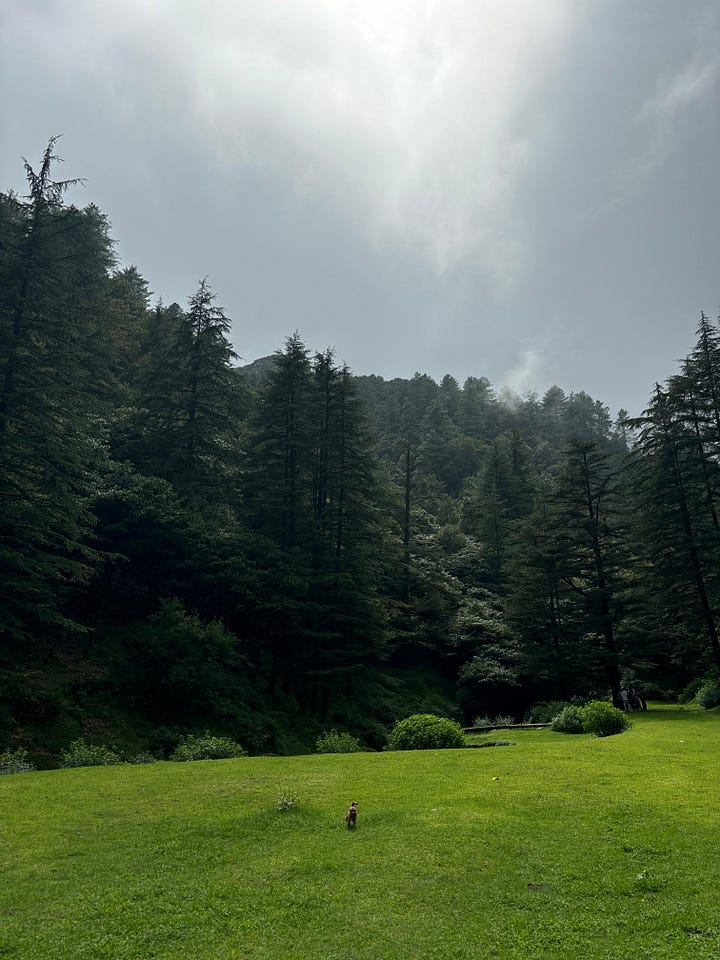
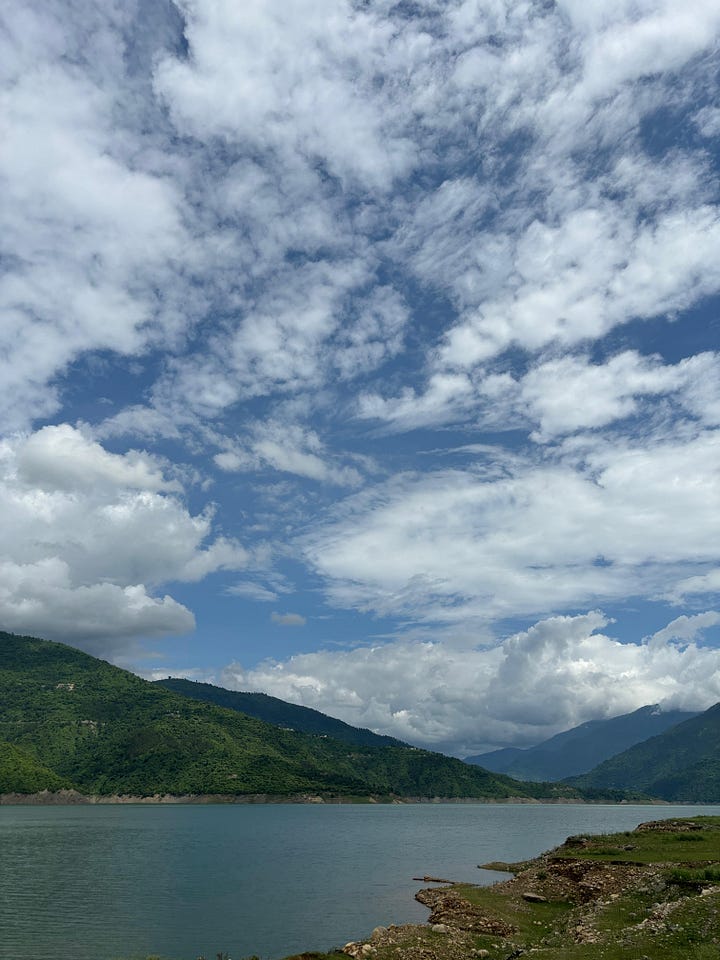
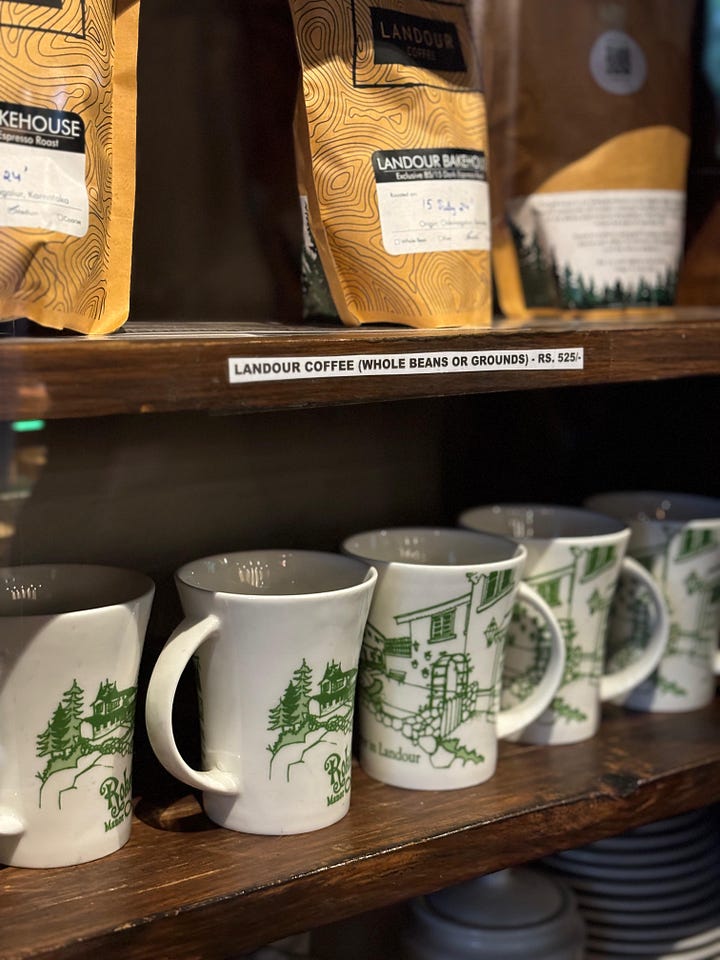
I realised that:
I was living too fast for someone who enjoys slow breakfasts and soft mornings.
I missed the version of me who read books for joy, not out of obligation.
My body had been quietly begging for rest and I finally listened.
Hustle culture had been robbing me of small joys I didn’t even realise I missed.
Not knowing the next step is okay, knowing what isn’t working is enough.
Ruskin Bond was right: the hills really do help you find your way back to yourself.
I wanted something softer, slower, quieter and it’s okay to want that.
I didn’t have all the answers back then. But I had a strong sense that something had to give. And four months later, it did: I quit my job.
People often talk about FOMO in the context of missed parties or travel plans, but my version of it was different. I felt the fear of missing out on life itself — the quiet kind, the real kind. I didn’t want to keep trading away the best hours of my day for something that didn’t fill me up anymore.
And so I chose to leave. Not because I had it all figured out, but because I was finally brave enough to admit what I was missing.
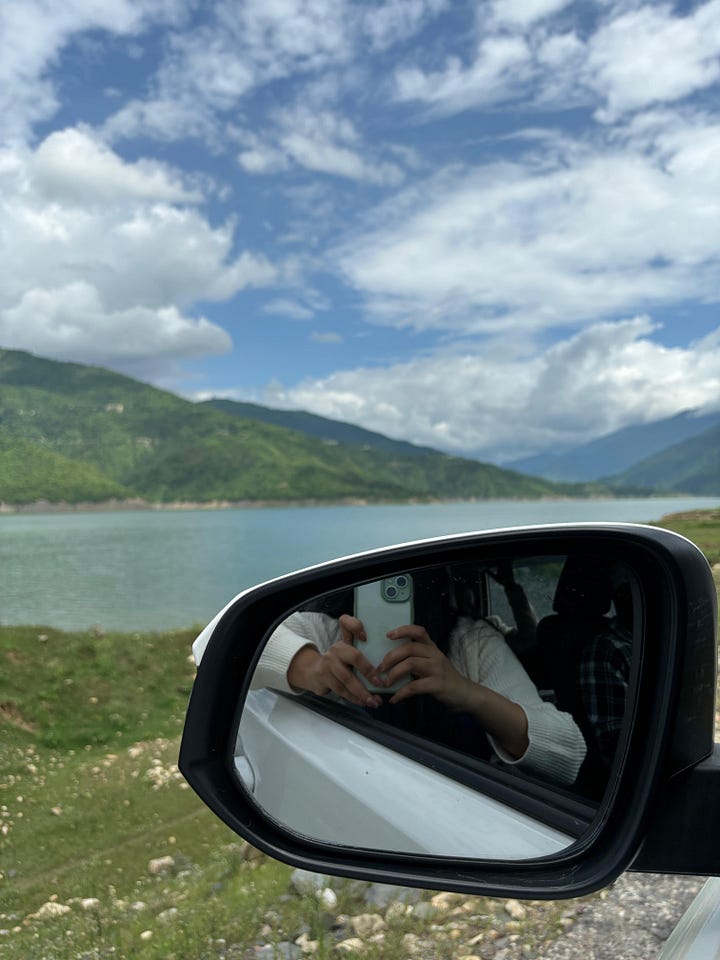
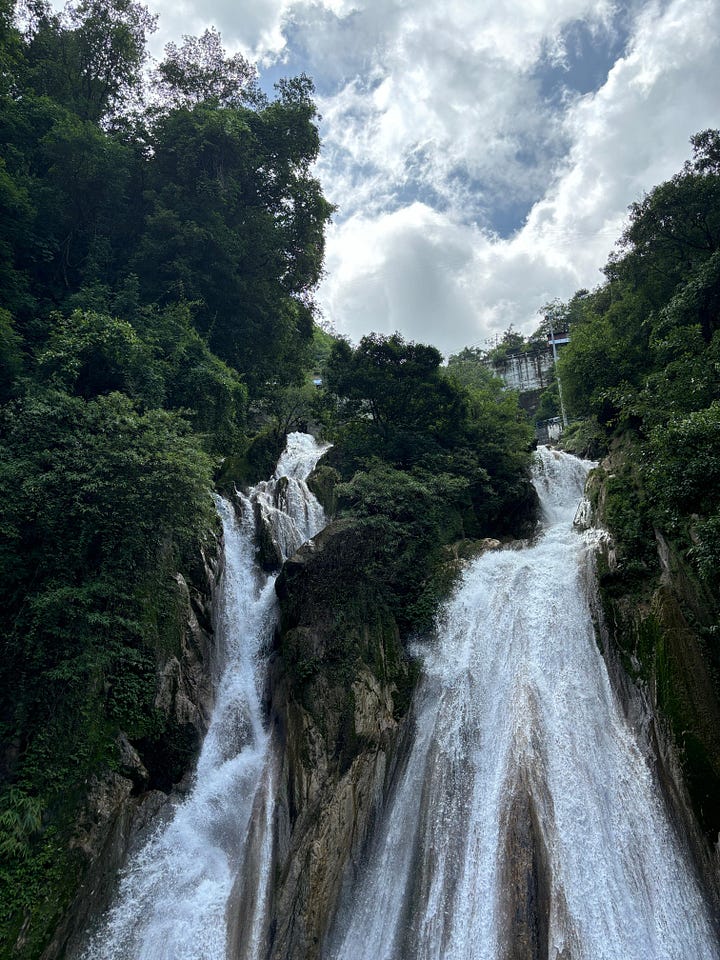
This time around, I arrived in Himachal carrying a whole new set of doubts — heavier, more bureaucratic, and frankly, more disheartening. They were mostly courtesy of a recent Supreme Court decision that sent law students and mid-career drifters like myself into an existential tizzy. If you know, you know.
To sum it up without getting too deep into legalese: the future I was working toward has been delayed — indefinitely and quite unreasonably — thanks to a sudden change in eligibility criteria that no one saw coming. Three years of practice, they now say, as if it were a small thing. As if it didn’t upend the very architecture of people’s carefully constructed career plans.
So here I am, standing at a fork in the road, with two equally unappealing options.
One: go back to the corporate world — to the BigLaw machine I once escaped — and try to find my footing again on a ladder I had already vowed never to climb.
Or two: stay put, wait it out, and start over. Build up practice experience in the relevant areas, likely from scratch, probably at a third of what I was once earning, surrounded by people several years junior to me. Relearn everything, just so I can become “eligible” for the future I had mapped out.
Does that sound like an easy choice to make?
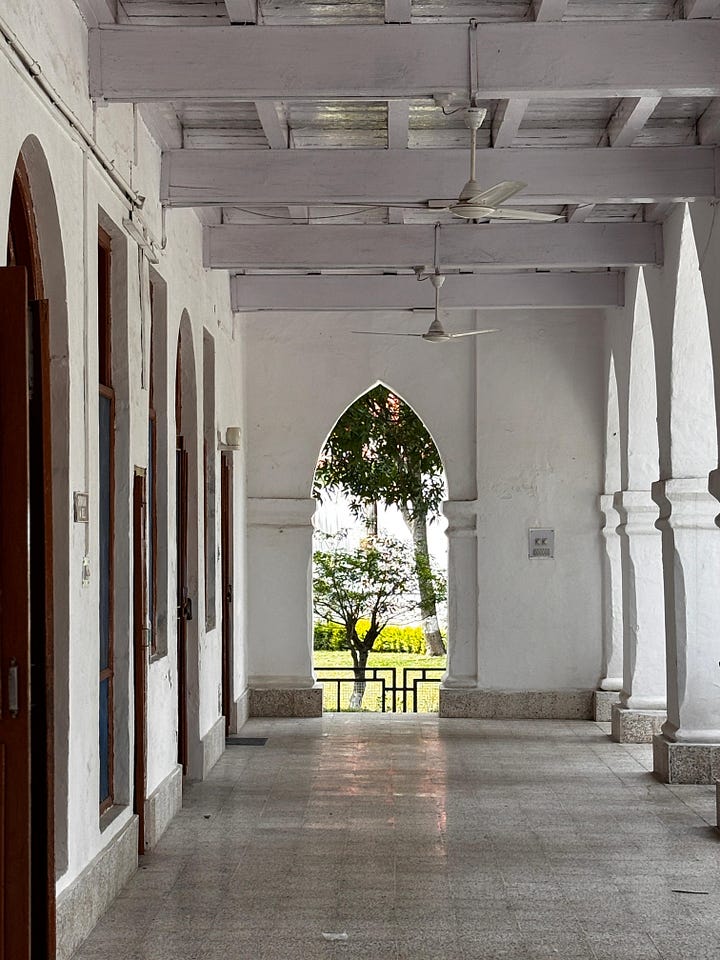
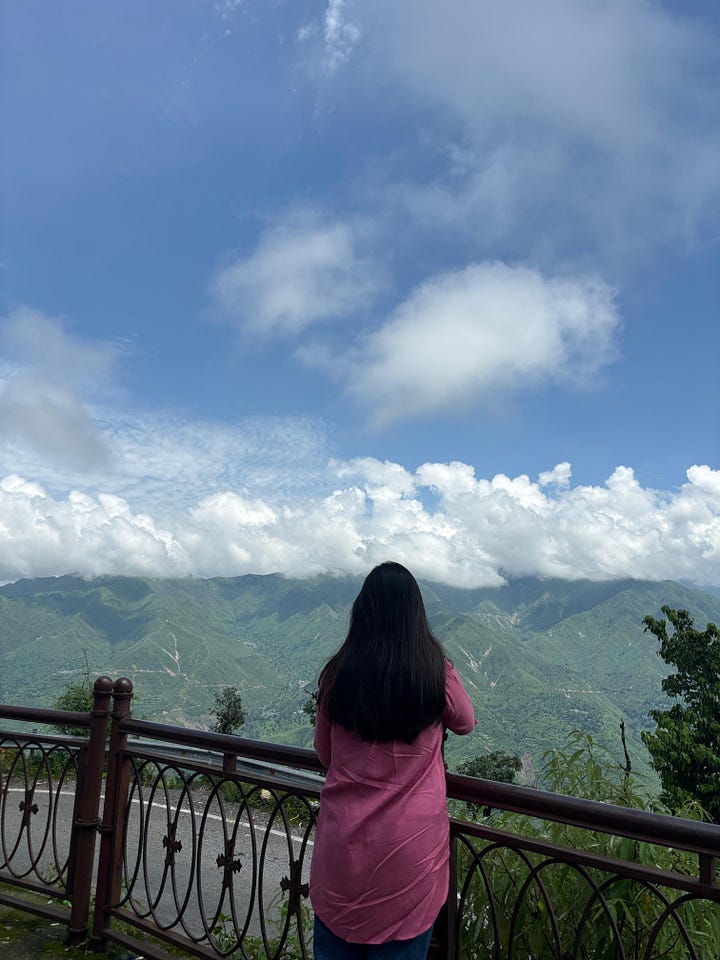
I won’t lie, I had already ticked off one of my personal dreams. I’d made it to the top of the corporate food chain, and I’d left. Not in flames, not with drama, but with quiet defiance. The kind of exit that says: I don’t owe you my joy.
It had been my dream, for the longest time, to do just that, to prove I could make it, and then leave before it ate me alive.
Because for all my life, I’ve been the gold star kid. The straight-A student. The high-performer. The one who showed up early, stayed late, and still felt like she was somehow falling behind. And in BigLaw, no matter how hard I tried, it never felt like enough. I was exhausted. I was so tired of being tired.
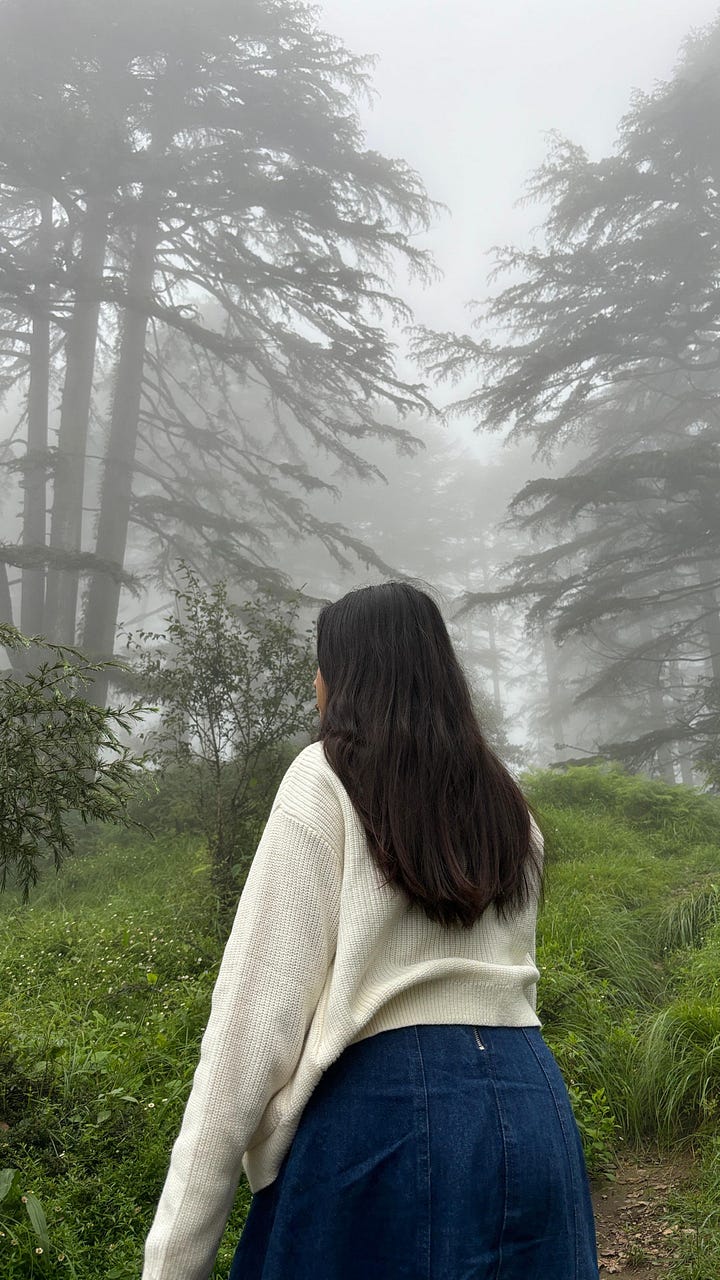
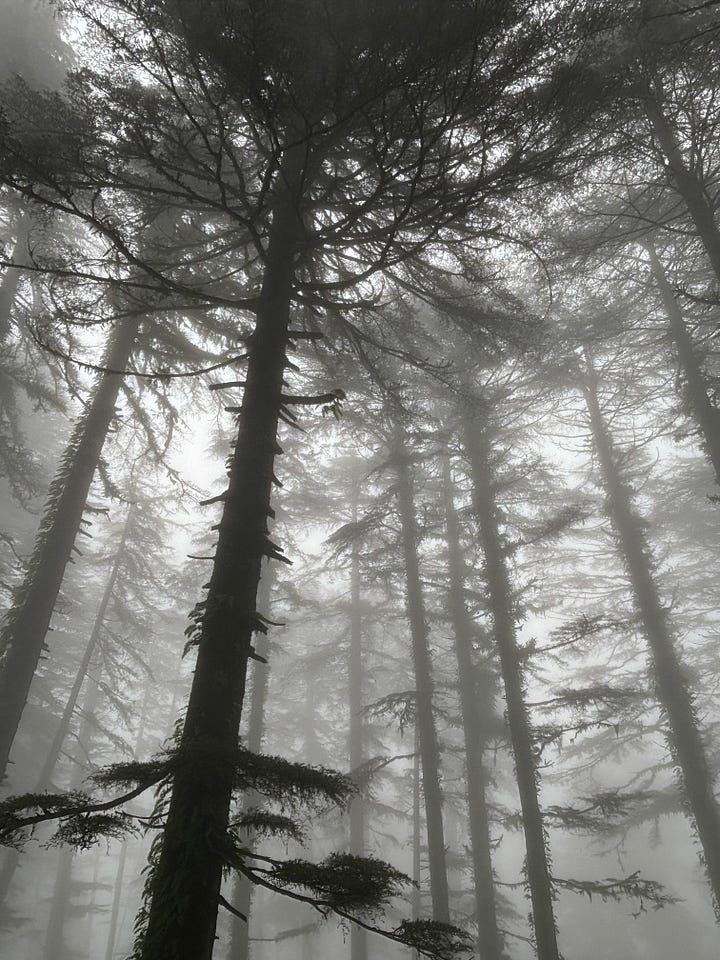
When I went to Mussoorie last year, I found the courage to stop. Like, really stop. And admit that it was okay to walk away after trying for so long. That maybe success isn’t always about staying the course sometimes, it’s about knowing when to change it.
Because here’s what I believe, even now, even in all this mess: we owe it to ourselves to find meaningful work. Not work that looks impressive on LinkedIn. Not work that silences the doubts for a little while. Meaningful work, the kind that feels honest, expansive, alive.
That’s what true ambition looks like to me now — not just chasing titles, but reclaiming your time, your voice, your life.
But when I was faced with this new three-year rule — it felt like a slap. A bureaucratic wall that made me question everything again. All over again.
So there I was, in Shimla this time, sitting under a cedar tree with a cup of too-hot chai, staring out at the mountains and asking myself the hardest question I’ve had to ask in a while:
Do I go back?
Do I go back to the very life I worked so hard to escape, just to inch closer to a different one?
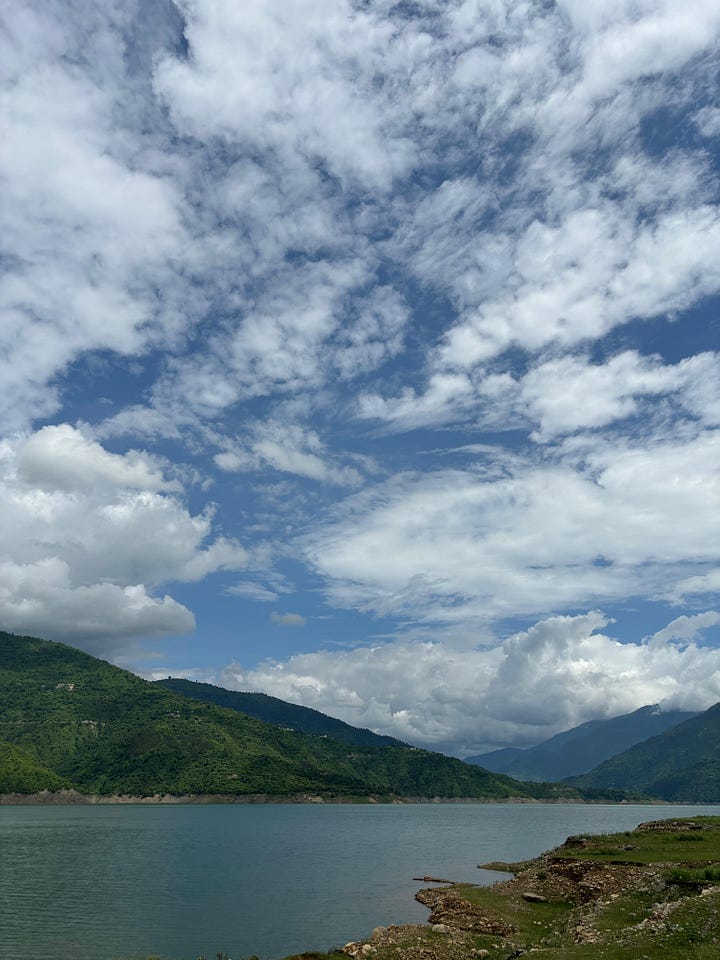
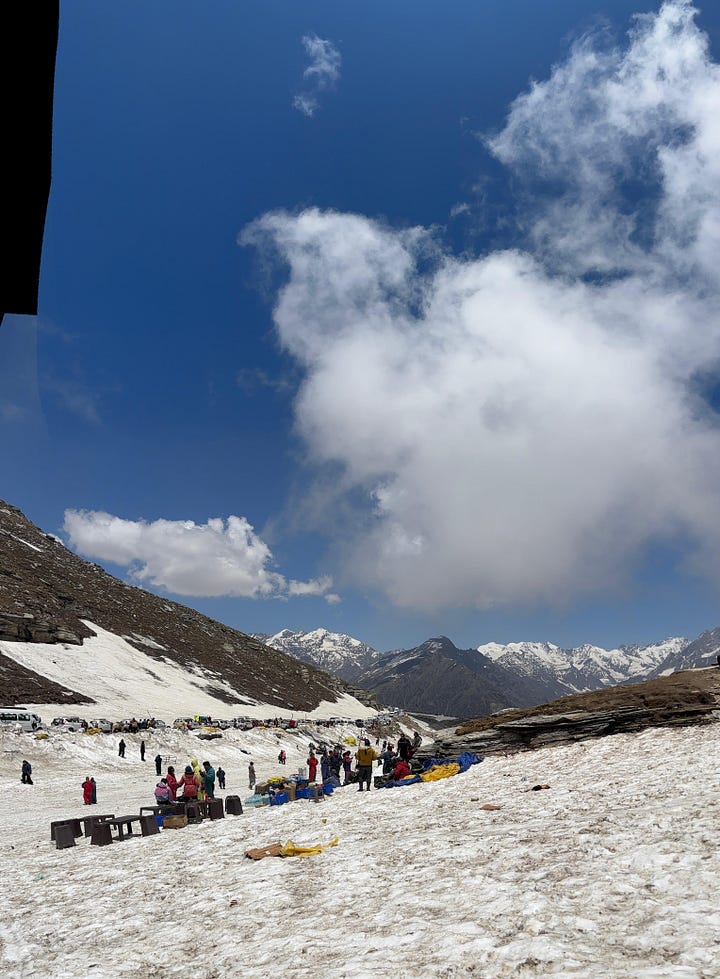
The truth is that there’s no neat answer. Not yet. Maybe that’s okay.
But I’ll say this much: if I’m going to start again, I want to start from somewhere honest. Somewhere that feels like me even if it’s slow, even if it’s hard.
Here are some realisations I made, my very own Shimla Pact:
Clarity requires distance. You can’t solve everything from the middle of your own overwhelm. Sometimes, silence is more useful than advice.
Career plans change and that’s not failure. Shifting directions isn’t a setback if you’re responding to new information or realities. Flexibility is a strength.
There’s no shame in starting over, even if it’s from scratch. Especially if what you were building no longer makes sense for where you want to go.
The prestige trap is real. Just because something looks impressive on paper doesn’t mean it’s right for you. Long-term fit matters more than external validation.
Letting go of sunk costs is hard but necessary. Time, energy, effort — yes, you’ve invested. But doubling down on a path that no longer serves you doesn’t make it worthwhile.
Direction matters more than speed. It’s okay if it takes longer. What matters is that you’re moving towards something that aligns with who you are now.
Shimla didn’t hand me a five-year plan neatly wrapped in certainty.
What it did give me was something quieter, and possibly more useful: the courage to sit with uncertainty, instead of rushing to escape it.
I went up to the hills burdened with questions I was afraid to answer — about career, identity, the weight of sunk costs, and the fear of beginning again. I came back with no shortcuts, but a little more grace. A little more faith in slow decisions, imperfect timing, and the quiet kind of ambition that doesn’t always shout, but still knows where it’s going.
✧
So no, I didn’t set out to make life-changing decisions every time I visited the Himalayas. And yet, somehow, that’s exactly what kept happening.
The first time was in Mussoorie — a quiet, rain-washed trip that ended with me realising I needed to quit my job. It wasn’t a thunderclap of insight. More like a soft ache that turned into a knowing. Somewhere between the misty roads and the smell of wet earth, I just knew: I was done pretending that burnout was ambition.
This time, it was Shimla. A trip I took thinking I just needed a break — from screens, from structure, from the constant murmur of deadlines. But the silence of the hills does this strange thing: it turns the volume down on the world, and up on your own voice. And there it was again, the question I’d been avoiding. Do I go back?
I didn’t come to the Himalayas to decide my future. But something about the stillness, the slowness, the altitude — it keeps bringing me back to myself. It’s not that the mountains hold answers. It’s just that they make it harder to ignore the questions.
So now, almost accidentally, the hills have become my crossroads. My decision-making retreat. My pause button. The place I go not to escape life, but to return to it a little more honestly.
And maybe that’s enough clarity to move forward with.
One step at a time. One mountain at a time.
P.S. If you know the name of the wildflower pictured in the post, tell me — it’s been on my mind since I came back.
Love,
Anna 💕





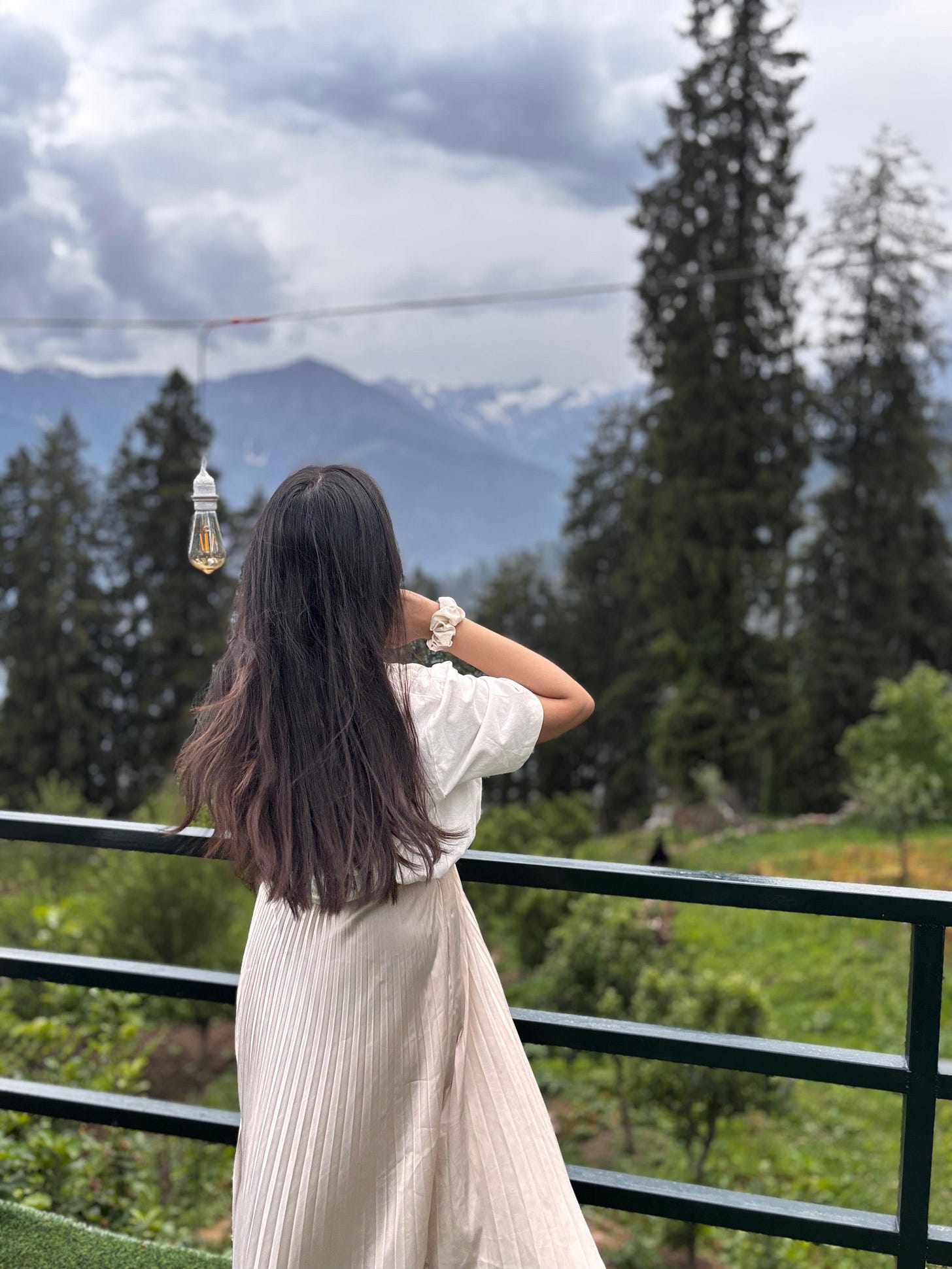
i adore this. travel writing meets introspection via the most beautiful and comforting words. thank you so much for sharing. i don't know you but i am so proud of you for choosing the path towards genuine, unencumbered happiness, even when it feels like the one less travelled! cheers to the hills and their transformative powers!
Welcome to the other side